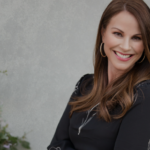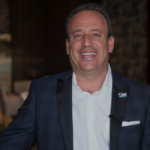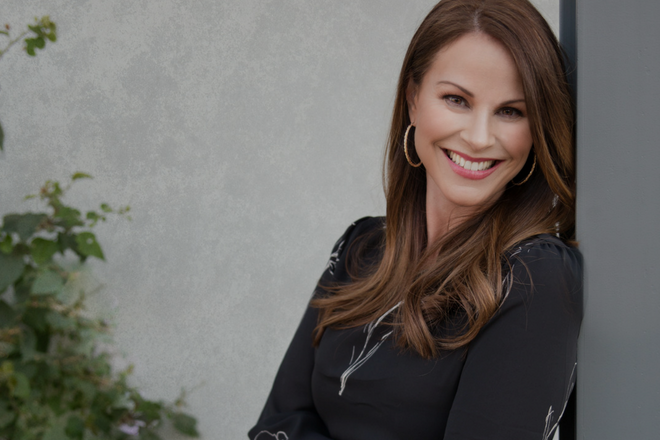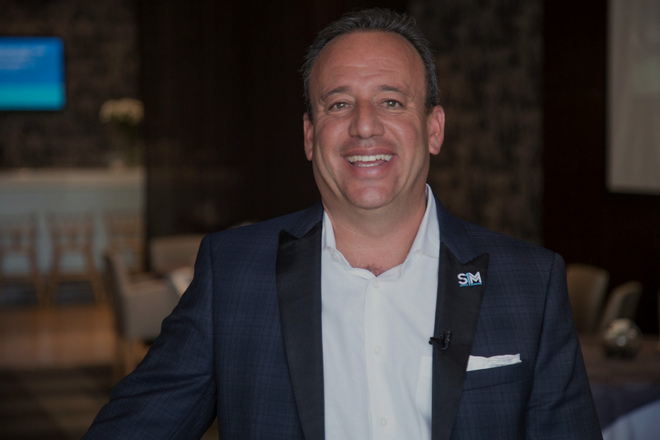“We complain for about five minutes. And then we dust ourselves off. And we’re like, “All right. We gotta switch it up. We gotta learn what we need to do differently. We gotta pivot.” So, we take it as a signal to keep moving forward.”
Matt Gottesman & Case Kenny – Having patience during growth; Difference between patience and impatience; Getting started; Saving reminders of the journey; Enjoying the process; Understanding your responsibilities and impact with influence.
Segment 1: (Length :04:00) – General Updates; Introduction; Matt & Case will be speaking; Difference between patience and impatience; Getting started; Saving reminders of the journey.
Matt & Case’s finer points:
“I think it’s important to define what we’re, at least what I knew when I talked about patience. And where I think it’s valuable. And then from that where it can be kind of painful and frustrating.”
“Let’s just say the summer is coming up and you really wanna get fit and shredded for the summer. Whatever it is. I see a lot of people that are too patient about it. Well, I gotta buy my groceries. And I gotta have the right gear. And I’m gonna take my time and develop a plan. And really … And then I’m gonna get into it. That’s the wrong kind of patience.”
“Matt and I were talking about this new arm of our business that we’re gonna introduce soon. And it’s something that we haven’t done yet. And so for me, it’s like I wanna get started right now. And then once we get started then I’ll be patient and understand the journey. To me, those are two contrasting types of patience. Right?”
“I think it’s important to whatever it is that you’re gonna start. Whether it’s an entrepreneurial journey, or it’s something creative, or it’s a lifestyle change. That, honestly, you jump right into it. Obviously, do your due diligence and prepare yourself adequately. But, I think it’s really important to have a sense of impatience when it comes to starting. Because otherwise, you’re on the sidelines. And you don’t even know the heck you’re talking about.”
From there, though, I think it's very important to have patience as you build.
“If you’re a new user, or a new listener rather, PRSUITs are daily email that we run. Previously it was a blog, but back in September, we made the decision to pivot it over to email. And that decision came very fast through me. I was like, “I wanna do it. I wanna do it. I’ve been thinking about it. But, I wanna go now.” Boom. And we did it. And very quickly. Learned a lot along the way. But, that was, yeah, it was four, six, five, call it five months ago.”
“But over the past five months, I’ve been very reasonably patient as I’m building. So to me, those are the kinds of patience, qualities of patience that I contrast. Right? Being impatient is starving impatient as you build.”
“But I think certainly, to your point Matt, it can be frustrating. The building process when it comes to patience. Right? Initially, you’re gung-ho. You’re moving fast. And that’s fine. But, then it settles in that now I have to be consistent. Now I have to do and repeat. And just do, and do, and do. And that’s where it can be frustrating.”
Yeah. I'm a little frustrated. I want to move faster. I want to build faster. I want to introduce new lines of business for us faster.
“But for me, I think the best way that I’ve learned to address that … And again this is gonna sound cliché, but I’m speaking from my experience. We’re not speaking from an Instagram quote. I think it’s really important that you save things along the way that reflect your growth. So for me, anytime someone sends me a message that says how much the email means to them. Or something I wrote means to them. I save it and I look at it periodically. Things like that.”
“Saving things like that that really show how far you’ve come, to me, that really kind of obliterates that pressure to perform. And to have that growth. A little reminders that show you far you’ve come from when you initially started. To me, that alleviates that.”
And then of course, I think it's surrounding yourself with people like Matt who level you out. And introduce into your mindset truly how far you've come. And that your ability and need to appreciate the process. So, I think it's a combination of the two. Right? Having reminders of how far you've come. And then surrounding yourself with people who balance you out.
“I don’t think it’s a great idea to have business partners that are all super impatient. Otherwise, you’re gonna be flying around in a million different directions. But, having people that balance you.”
Segment 2: (Length :08:00) – Talking with Matt & Case; Enjoying the process; Understanding your responsibilities and impact with influence.
Matt & Case’s finer points:
“Momentum, plateau, momentum, plateau, momentum, plateau. Because that’s actually what happens at various stages of the journey. The plateau is also a signal for change.”
“It’s also difficult. I go through it, too. Because that momentum when you’re starting off and you’re seeing that growth is like … It’s exhilarating because it’s almost … It’s not validating you. It’s validating the concept. Or it’s validating the work. Like that it’s … ‘Cause for us, we’re about the end consumer, the end user. So, we’re like oh, we hit something that they want. That’s such a good feeling. Right?”
“That’s not to account for variables that are out of your control. The market, the algorithms, all these other things that sort of say, “Oh, you guys are having momentum? I’m just gonna go ahead and take that away from you right now.”
“And what happens with a lot of people … And it certainly happened to us. We are not immune. We’re not gonna pretend like it didn’t. At different times where that plateauing hurts a little bit. It stings a little bit. Because you’re like, “What do I do? What do I do?”
“And yeah, there’s a little bit of the addiction to the growth. And one of our advisors, Adam Toren, reminded me when he said, ‘I think if you take a step back and look at how far you came. And from where you came from to now. You would realize that you’re going faster than most people. Even your predecessors. Even the people who’ve come before you. You’re moving fast. You guys are building fast.'”
“There’s sometimes a little bit of that, I think, addiction to the vision, to the goals of the vision. That can carry us away if we don’t take a step back. So to Case’s point, we can kind of appreciate where we are.”
And also, I've learned ... 'Cause I've gone through this. So over the last year, it's that actually enjoying it. Taking time to enjoy it. And that also made a complete pivot for me. And what I mean by that is that we can grow, grow, grow, grow. And be all about the growth. Well, one of the biggest things I learned is that if we actually really enjoy exactly where we're at and dive into the details of where we're at, that will actually spike a whole new level of growth.
“And what I mean by that is for example, you get a lot of people with their Instagram followings, and the email list followers, and the Facebook, and whatever. Wherever they’re at in their tribe if you will, their community. If you nurture those people. And just really help that crew. They become an army for you. And that also helps expand your initiative, your movement, your brand in a whole different manner and capacity.”
“There’s a reason you have to take a step back. And enjoy exactly where you’re at. And work with the details of where you’re at. Because in essence, that could also feed the vision even further.”
“That sometimes it’s about really looking at the details of where you’re at versus kind of well I know where I want to be at this number. Because I wanna help more people. Or I’m gonna help whatever people I have right now. And that’ll also help me help their people. And their people’s people and so forth and so on, too. So, expansion from a different realm.”
And then also, Case, your point about again when you're tied to your vision. When we get these read messages, or these texts, or these emails that people tell you how it affects them. The responsibility becomes way bigger than sometimes our own petty internal conversations.
“There have been people who are like, “Hey.” They thought their life was over. I mean literally, they seemed like it was about to be over. And then they just like, “You know what. Something you said just clicked. And I started taking a little bit more responsibility. And looking internally. And then from there …” And then they tell you their whole story. And you go, “Okay. This has nothing to do with me. This is actually way bigger. And it’s part of my purpose. It’s part of what we’re all here to do. And where we’re really going. So, maybe not whine and complain so much.”
“And so, in the plateauing stages diving into the details and understanding what am I already working with? What are we already working with? And how can we better the experience from there? And so, it allows us to get more creative and keep building on that. Because I think that you can never get too comfortable. Right?”
“Even though growth isn’t comfortable. You know what I mean? But, you can never get too comfortable and solely rely on solely one momentum. Right?”
And being vulnerable myself of that. I think I don't have a lot of it figured out. I think it's really... It's like when you wanna create momentum and you wanna create growth, it's tough to take a step back and be happy with what you have. Even like ... Yeah, to your point going from 8,000 to 100,000 is great. And our influence, and our voice, and our revenue has been through the roof. And it's great. But, I'm sitting here and it's not good enough for me. And I wish that I can sit here and be like, 'I'm happy with that.'
“And half of me is, but half of me isn’t. But, it’s tough. It’s really tough to do that. And I think maybe that’s competitiveness or me just wanting more. I think that’s a pretty universal term.”
“But, at the same way when it comes to income and stuff, I remember when I was working at an ad agency. And I was making 30 grand. And then I made 50. And I was like, “Oh, man. If I only made 75, my life would be set.” I made 75. And it’s like, “Well.” Your vision adjusts. So, I think that you really need to check yourself. And audit yourself to make you do that. Take a step back intentionally.”
“I can’t sit here and lecture on the topic. Because I certainly am not the best at it. But, I’m getting better certainly. I just think you really need to be intentional in taking a step back. And doing so.”
You have to keep growing. And I think when it comes to patience, you do need to be, maybe, more deliberate. Once that journey is going, I don't think you should be content all the time, though. I think you really always need to be pushing for that next moment of realization.
“Like for Matt and myself, that was a pivot back a couple of months ago. It was more recently introducing something new that we think is really going to fit our business model well. So, I think you need to be impatient to push yourself towards a new realization. But, be content with what you’ve done.”
“So, throwing out self-improvement buzz words around. But for me, I think that’s worked well. But I mean, if you’re a competitive dude, or girl, or just in general. You have really high expectations of yourself. It’s never gonna be a perfect scenario where your patient, but impatient. But, also very reflective in gratitude. It’s a tough formula to balance. And I’m not very good at that. So, I don’t think that’s why I haven’t figured it out. But, it’s definitely a learning process for sure.”
I think sometimes, this sounds funny, but I think we were ahead of our time when we both started. And then met each other in terms of we knew that everything was about the journey. Ironically, that also meant our journey. Right? That we hadn't actually taken that into consideration on the way.
“Because growth is an interesting … For example, you think of things differently. You probably thought of things differently when you were making $30,000 a year versus when you were making six figures a year. You probably thought about things differently when you had 1,000 followers versus when you have 150,000 engaged followers.”
“I think that kind of mentality is really good because it forces you to really take a look at yourself, and your value, and what you’re doing. So I mean, certainly, you and I … And I know we don’t take anything for granted. And we’re humbled by the influence that we’ve been able to achieve along the way. But, I think part of that’s being vulnerable. And saying, “Wow. I’ve said something, or I’ve done something, I’ve created something for someone and that’s impacted them. I need to do more of that. And stay true to that.”
FOR MORE, LISTEN TO THE REST OF THE EPISODE!!
Check out Matt HERE | Social for HDFMagazine: Instagram | Facebook | Twitter | Social for Matt: Instagram | Facebook | Twitter









